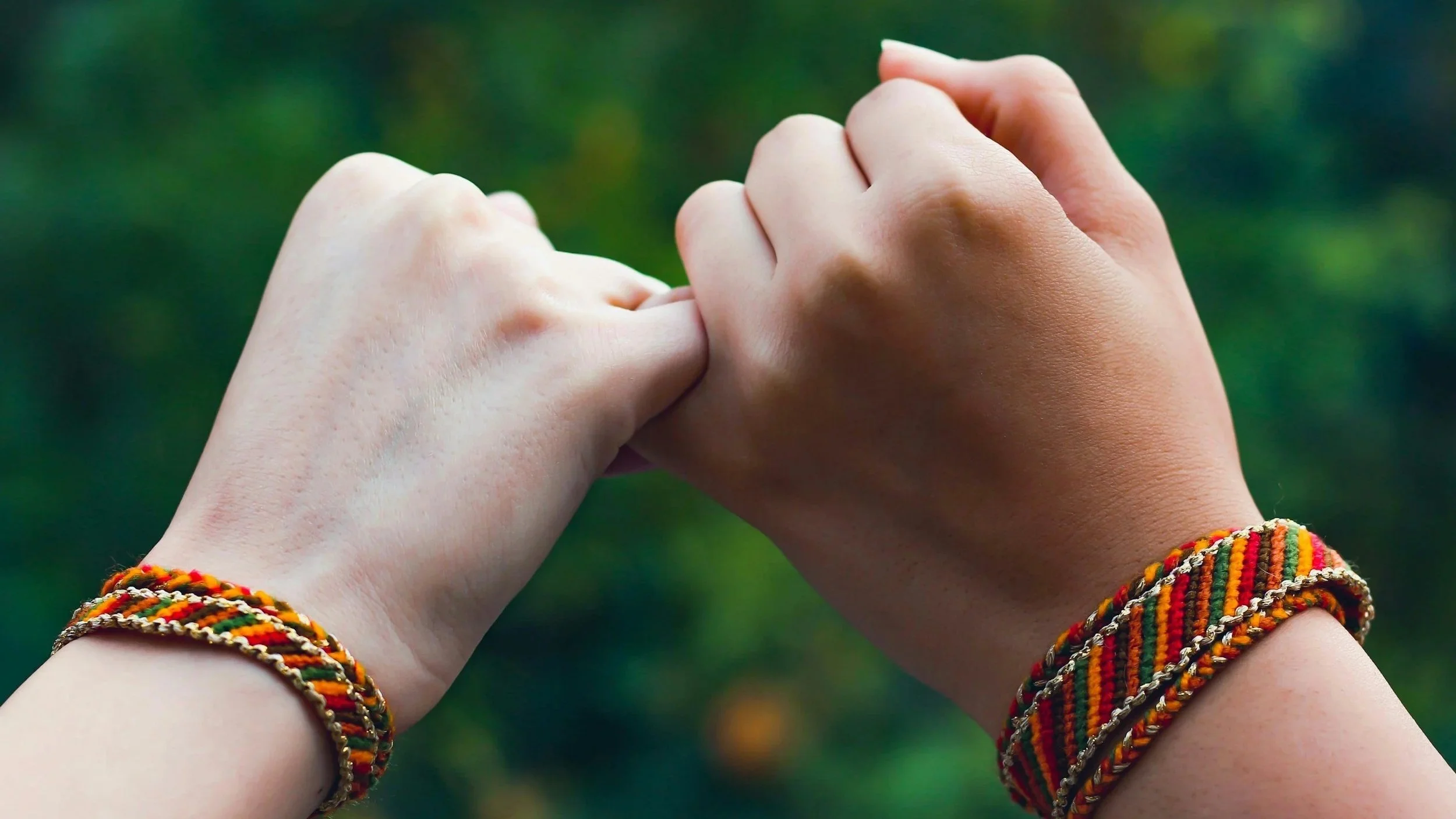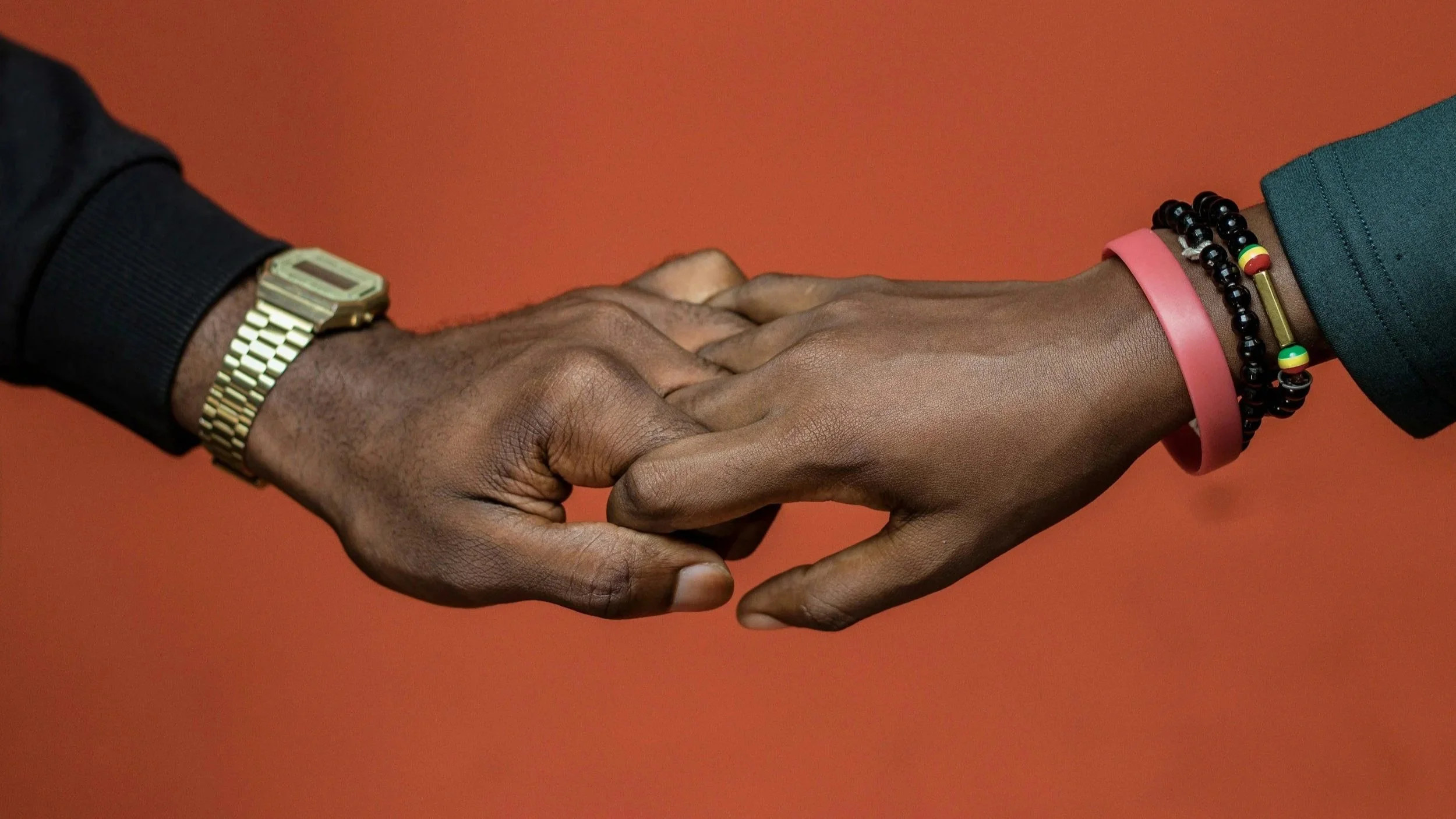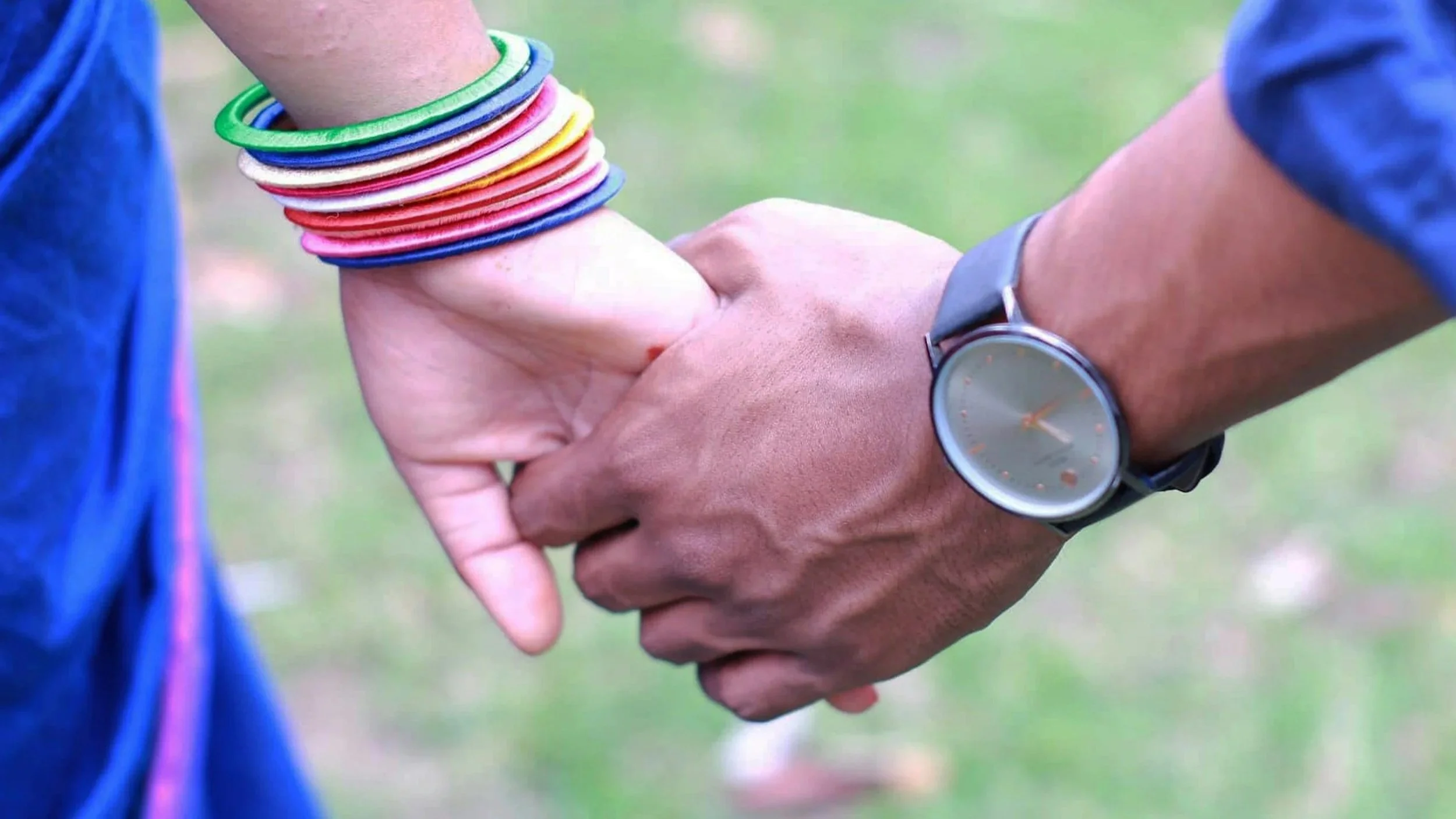Friendship Grief Is Real—And It’s One of the Hardest Parts of Loss
Grief can make reading hard. Want to listen to this article instead? Find its corresponding podcast episode here.
When society talks about grief it’s focus is usually on you, the person who lost someone or something. Any support resources, groups, or materials are all about how you, as an individual person who’s faced loss, are going to cope and move forward.
But what no one talks about—and what absolutely devastates so many of my clients and students—is that your grief also includes other people. And sometimes, grief includes mourning your friendships.
The people you thought would show up disappear. The ones you assumed would “get it” don’t. Conversations get awkward. Invitations stop coming. Texts go unanswered.
Society—and even the world of grief support—often forget one crucial fact of life after loss: grief never happens in a vacuum.
Every grieving person is surrounded by family members, friends, neighbors, and coworkers. Some of whom are incredibly supportive and helpful, and some of whom, sadly, aren’t.
So for countless grievers, we not only experience a big, earth-shattering loss—what some might call a “primary loss”; we also experience the crushing secondary loss of friendships.
It’s the kind of grief no one prepares you for. But it’s real. And on the heels of International Day of Friendship (July 30), we need to talk about it.
In this article I’ll define what friendship grief is, share why it hurts so much, and help you understand what you (as a grieving person with limited time and energy) can do to process and move through it.
What Is Friendship Grief?
Friendship grief is the mourning that happens when your social circle shrinks in the wake of major loss.
It might be slow and subtle, like a friend who drifts away over time. Or it might be sudden and jarring, like a family member ghosting you after your diagnosis or divorce.
Whether the loss is loud or quiet, abrupt or drawn out, the loss of a friendship can leave you questioning:
What did I do to deserve this?
Why couldn’t they be there for me?
Did my loss make me “too sad,” “too broken,” or “too needy” for them?
Is everyone in my circle eventually going to leave?
Friendship loss isn’t talked about enough, and yet it’s one of the most common—and most painful—parts of grieving.
Why We Lose Friends After Loss
Regardless of whether or not you want it to, grief changes you. And your shifting identity, emotional needs, or new grief-informed worldview can shake up even your closest relationships. Simply put, grief changes your rules of engagement. But that doesn’t mean the loss of a friendship is your fault.
The truth is, most people are wildly unprepared to show up for someone who’s grieving. And instead of learning how to be present with your pain, they fall into unhelpful roles, scripts, or behaviors that cause harm—even if they mean well.
These harmful behaviors often show up as patterns I call the 11 Toxic Grief Tropes. Once you start to notice them, they become painfully obvious.
Here are three of the most common Toxic Grief Tropes:
The Rose-Colored Reframer is the friend who insists on trying to cheer you up when what you really need is to be heard. They say things like, “At least they’re in a better place,” or “You should try to focus on the positive.”
The Awkward Avoider changes the subject every time you mention your grief. They keep it light. They talk about the weather or celebrity gossip. They avoid your pain like it’s contagious.
The Judgmental Jerk criticizes you for grieving. They ask things like, “You still aren’t over it yet?” or say things like, “You need to get over it and move on.” They see grief as time-limited and, often, as a sign that you’re stuck in the past.
These behaviors—though not always malicious—can leave you feeling erased, silenced, or completely alone in your grief.
(To learn all of the 11 Toxic Grief Tropes and get tools for navigating their presence in your friendships, join my private community of grievers in Life After Loss Academy!)
Why Friendship Loss Hurts So Much
Losing your friendships after a loss can feel like yet another blow to your already-aching heart.
You may grieve:
The shared history you thought would carry you through anything
The expectation you had of who would hold your hand through the hard parts of life
The certainty that your friends would never abandon you
Friendship loss after death, divorce, diagnosis, or another major loss is especially devastating because it steals your sense of safety in the world. And in grief, feeling safe or stable in a crumbling world is a crucial step in healing. (You can read more on practicing safety as a skill after loss in this blog.)
When your closest friends and family members become unpredictable, harmful, dismissive, or absent, it reinforces the feeling that grief has changed everything about you and your life—and not for the better. It also leaves you feeling alone… and maybe like something is wrong with you for—as one of my clients put it—“driving others away with my grief.”
How to Negotiate Friendships After Loss
If there’s any good news to be had here, it’s that friendship after loss doesn’t have to be all or nothing.
Sometimes you can repair or recalibrate a relationship once you get clear on what you need—and how to ask for it.
Here’s a framework to help you navigate friendships after loss with more clarity and agency. It’s something I teach in greater depth inside my online course + community, Life After Loss Academy, so if it’s helpful to you, I’d love to see you there.
1. Identify Your Grief Allies
Before repairing or recalibrating the relationships that hurt your heart, make a list of the people who are showing up for you right now. These are your “green light” people—your grief allies. And remember, a grief ally isn’t necessarily someone with the perfect words; they’re just someone who is present, consistent, and emotionally safe to share your loss with.
Look for people who:
Ask how you’re really doing—and then listen
Don’t flinch when you talk about your grief
Remember your significant grief dates and reach out
Say your loved one’s name out loud
Offer support without fixing or comparing
Keep checking in, even after time has passed
It’s okay if your list of grief allies is small. Depth matters more than quantity here.
2. Spot the Toxic Grief Tropes
Next, get honest about which friendships are hurting you. Make a list of “yellow light” people who feel supportive some of the time, and a list of “red light” people who are rarely or never supportive. Then, using my list of 11 Toxic Grief Tropes (which you can find inside Life After Loss Academy) or your own observations, notice the behaviors they’re doing that feel harmful to you.
For instance:
Do they minimize your grief with “at least” statements?
Do they hijack your grief story with their own?
Do they constantly compare their loss to yours?
Do they judge how you’re grieving (or for how long)?
Do they avoid you altogether?
Giving these behaviors a name can help you separate the pain from the friend who’s doing them—and see them for what they are: a person with a lack of grief literacy, not a reflection of your worth or value as a friend.
3. Set a Boundary and Make a Plan
If a relationship with a “yellow light” or “red light” person feels worth salvaging, you can try setting a boundary or making a direct request.
For example, here’s a script to try with a friend who exhibits Awkward Avoider behavior:
“When you avoid my grief, it makes me feel like I can’t talk about my loss with you. I know it can be hard to know what to say, but what I need most is someone who can be with me—even if it’s messy or uncomfortable. In this season, I don’t need distractions or solutions. I need to know you’re here for me. Instead of avoiding talking about my loss, could you ask how I’m doing once a week and really listen to my answer? That would feel helpful to me.”
Then, make a three-part action plan based on their response:
If they respond well: Great! Reinforce the behavior by thanking them. Let them know how much it means to feel seen.
If they respond poorly: Acknowledge the outcome and take some space. You might say, “I can’t keep talking to you if I don’t feel heard. And this loss is an important part of my life now. I’m going to take some distance from our relationship.”
If they don’t respond at all: Try approaching them again at another time—and check to make sure they got your first message (technology like text message or email can be weird sometimes!). If they continue to avoid talking about your grief or go silent, there’s your answer. They cannot be supportive to you in grief. Mourn the loss of this friendship, and redirect your energy toward relationships that can hold space for who you are now.
4. Return to Yourself
The grief of losing friends can leave you emotionally depleted. Make space to recharge with self-care that tends to your body, mind, heart, and spirit.
This might look like:
Writing letters to your lost friend or friendship (even if you never send them)
Meditation, breathwork, chanting, or singing
Taking time offline to detox from unhelpful imagery of “perfect friendships”
Moving your body in ways that feel nourishing
Visiting a beautiful place in nature
5. Create New Rules of Engagement for Future Relationships
Loss changes you—and that means your friendship criteria may need to change, too.
Ask yourself:
What do I need now that I didn’t need before my loss?
What kind of emotional safety do I require in a relationship? What does that look like in practice?
What am I no longer available for? What do I no longer have the bandwidth to tolerate?
What makes me feel the most seen, heard, loved, and valued in a relationship?
You have the power to decide what friendship means now, in this new, griefy version of your life. You get to create updated agreements with the people who want to be part of it. And you are in control of who gets to enter the sacred circle of your closest friends. You may feel that your heart is broken. But it is also precious. Consider who you want to have access to it.
On International Day of Friendship, Let’s Tell the Truth About Friendship Loss
Yesterday, July 30, was International Day of Friendship. For many grieving people, this day stings—not because we don’t value friendship, but because we’ve learned through losing friendships what true friendship in grief really looks like.
It’s not saying the perfect thing—it’s staying present when things get weird, sad, or hard.
It’s not pushing you to “move on” or judging you for not being “over it” by now—it’s coming alongside you as you figure out how to fold loss into your life.
It’s not disappearing after the funeral, breakup, disaster, or diagnosis—it’s showing up weeks, months, and even decades later.
Closing Thoughts: What You Deserve in Friendship After Loss
Some friendships survive grief. Some evolve. Some end. And all of that is part of the reality of loss.
If you’ve lost friendships in the wake of grief, you are not broken or unlovable. You are becoming someone who can no longer tolerate shallow connection or surface-level support. And that’s okay. In fact, I’d argue that it’s necessary.
You deserve:
Friends who welcome your loss as a part you and understand that grief is lifelong
People who don’t analyze, criticize, or fix you, but sit next to you
Relationships that make space for the full spectrum of human emotions and experiences
As painful as friendship grief is, it clarifies who’s capable of coming with you into the future, who you need to release from the title of “friend,” and what you might like your friendships to feel like going forward.
It’s a difficult part of loss, and one that is worthy of your time and tending.
If you’re looking for a community to support you as you renegotiate your relationships after loss, join us inside Life After Loss Academy. There, you’ll get the 11 Toxic Grief Tropes list, and learn my 5-step framework for establishing boundaries with people whose behaviors are harmful to you in grief. It’s all in Module 4: Establish. You can learn more and become a student here.


